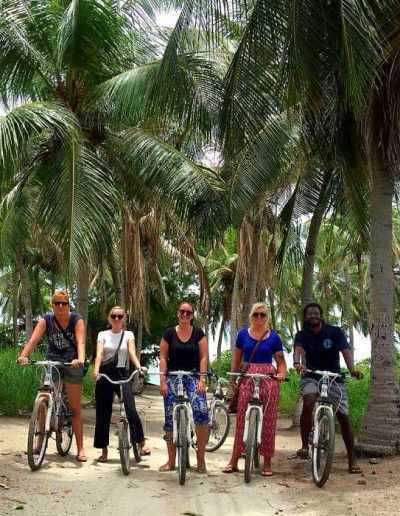News
Manchester, United Kingdom — 22-25 September 2009WYSE Archives
![]()
Secret Paradise stands behind responsible, sustainable and ecotourism
When Secret Paradise was formed in 2012, local tourism was at the beginning of its journey. Our co-founder, Ruth Franklin, was conscious that however the business was developed, we needed to be mindful of promoting local tourism in line with Maldivian culture and beliefs. Over recent years, the terms responsible tourism, sustainable tourism and eco-tourism have become common vocabulary within the travel industry, but what do they really mean?
Responsible Tourism
Responsible tourism refers to the way in which visitors, residents and businesses interact with a destination, maximising the benefits to local communities and minimising negative social or environmental impact. In many instances, it is reflective of those who choose to travel responsibly and foster a positive interaction between themselves and their chosen destination.
Examples include:
- Choosing environmentally friendly products
- Respecting local customs and traditions
- Conserving energy
- Choosing and supporting local businesses
Buying souvenirs that are produced locally
Sustainable Tourism
Sustainable Tourism is tourism that leads to the management of resources in such a way that economic, social, and environmental needs can be fulfilled.
In essence it is the stakeholders of a destination, be that businesses such as Secret Paradise or governments and tourism related bodies, who work to achieve and improve sustainability within their destination. Sustainable tourism is integral to the continued practice of the travel industry worldwide.
Examples include:
- Conservation of resources such as water
- Reduction of waste
- Strengthening local production
- Protection of the environment
- Promoting local economy and securing jobs
Involving local people in decisions that affect their lives
Ecotourism
Ecotourism is now defined by the International Eco Tourism Society as “responsible travel to natural areas that conserves the environment, sustains the well-being of the local people, and involves interpretation and education” (TIES, 2015).
The interests of the local population and a positive guest experience are the top priorities of ecotourism. Interference with nature, the local traditions and ways of life are to be kept to a minimum. One of the big advantages of ecotourism is that the majority of revenue produced flows into the local economy.
Examples include:
- Providing positive experiences for both visitors and hosts
- Providing direct financial benefits for conservation
- Generating financial benefits for both local people and private industry
- Designing, constructing and operating low environment-impact facilities.
With people now able to travel to the remotest locations, tourism is one of the biggest industries in the world; one that employs countless people and keeps many nations afloat. Now more than ever, travellers are increasingly looking to take steps to cut their travels’ environmental impact. In fact, according to the 2019 Booking.com survey, 86% of global travellers would be willing to engage with activities that counteract the environmental impact of their trip and 71% of travellers think that travel companies should offer consumers more sustainable travel choices.
Responsible, sustainable and ecotourism have always been an integral part of Secret Paradise’s philosophy and mission statement. As we have grown, we have looked for opportunities to support local initiatives and allow Maldives-based organisations, NGOs and marine-life charities the chance to interact with guests, increasing their exposure to a wider audience.
The transition from mass to sustainable tourism is not simply a temporary fad, but an unavoidable step to combine the needs of the guests and the economic interests of the destination and local communities. Sustainable tourism requires focus and adaption; it requires long-term thinking and the realisation that change is often cumulative and gradual.




